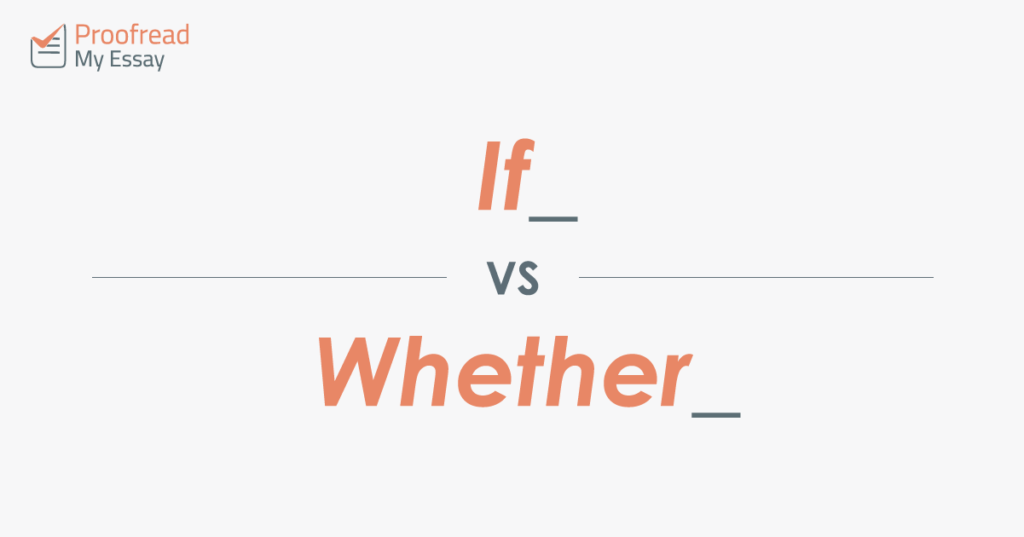We have a slightly unusual Word Choice post today, as we’re looking at the words ‘if’ and ‘whether’. Although they look and sound completely different, they do overlap in meaning. And this means that they’re occasionally misused.
As such, to help you avoid errors, we’ve written a short guide to how they should be used.
Yes/No Questions (Whether or If)
A lot of the confusion arises because ‘whether’ and ‘if’ both imply uncertainty. They can therefore be used interchangeably when referring to something that could be posed as a yes/no question. For example:
I’m not sure if my grammar is correct. ✓
I’m not sure whether my grammar is correct. ✓
These sentences are not yes/no questions, but they could be rephrased as one (i.e. ‘Is my grammar correct?’). As such, either term can be used here, although ‘whether’ is more formal.
Use ‘If’ When…
The only time that ‘if’ should be used instead of ‘whether’ is in a conditional sentence (i.e. when setting out a condition for something else to occur). For instance:
If you make an error, I will correct it. ✓
Whether you make an error, I will correct it. ✗
‘Whether’ is incorrect here because it should only be used when there is more than one possibility, whereas in this case we are simply setting out a condition and a consequence.
Use ‘Whether’ When…
Other than the situations above, you should typically use ‘whether’ instead of ‘if’. The most common error is using ‘if’ when referring to a choice between two or more options:
Find this useful?
Subscribe to our newsletter and get writing tips from our editors straight to your inbox.
I need to decide whether I’m going to write a story or an essay. (Choice)
I need to decide if I’m going to write a story or an essay. (Conditional)
While both of these sentences are grammatical, they differ significantly in meaning, so the second one would be incorrect if describing a choice.
The ‘whether’ sentence is presenting a choice between two things: writing a story or writing an essay. The ‘if’ sentence, on the other hand, is a conditional: it suggests the speaker is deciding whether to write anything at all, not thinking about what to write.
The same distinction applies even when the second option is only implied:
Let the examiner know whether you need help. (Choice)
Let the examiner know if you need help. (Conditional)
In the first sentence, we’re told to inform someone whether or not we need help (i.e. a response is required either way). In the second, we’re told to ask for help only if we need it.
‘Whether’ is also preferred in a few other situations, such as after prepositions and before infinitive verbs. As a result, the best approach is to only use ‘if’ for conditionals, as ‘whether’ is correct (or at least more formal) in far more situations.
